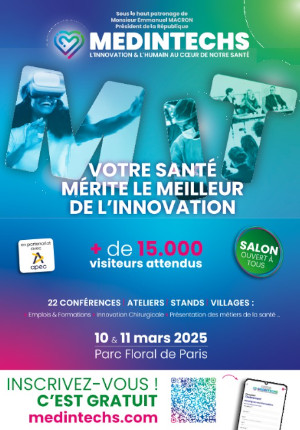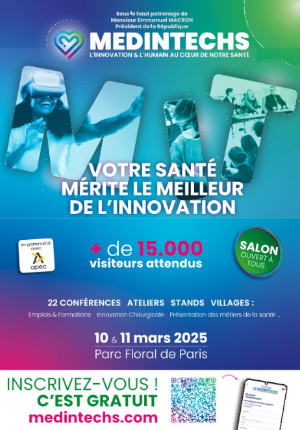Epigenetic mechanisms of stem cell aging
| ABG-125344 | Sujet de Thèse | |
| 29/07/2024 | Financement public/privé |

- Biologie
- Biochimie
Description du sujet
As we age, the intrinsic ability of stem cells to self-renew and differentiate to maintain tissue integrity dramatically declines. Therefore, understanding the processes leading to stem cell dysfunction with age is essential for the future development of novel, effective stem cell-based therapies to treat disorders associated with aging. Therefore, my long-term goal is to elucidate the epigenetic mechanisms of stem cell aging, manipulate them to rejuvenate aged tissue, and promote healthy aging. More specifically, the insight provided by this proposal would be used to devise strategies to rejuvenate muscle and hematopoietic stem cell function, and therefore promote skeletal muscle recovery and reduce age-associated systemic low- grade chronic inflammation. To accomplish this objective, we will utilize mouse genetic models, models of skeletal muscle degenerative injury and moderate exercise (voluntary wheel running; VWR), cell culture systems, imaging analysis, small molecule inhibitors, flow cytometry analysis, physiological measures of recovery, genomics, and epigenomics (Cleavage Under Targets and Tagmentation; CUT&Tag). In aged mice, both muscle stem cell (MuSC) and hematopoietic stem and progenitor cell (HSPC) quiescence is disrupted, leading to reduced regenerative capacity. Recent studies used VWR to restore quiescence and rejuvenate both MuSC and HSPC function in aged mice. The epigenetic landscape in both stem cell populations changes dramatically, yet the mechanisms underlying these events as well as their contribution to age-associated dysfunction remain understudied. The lysine methyltransferase 5a (Kmt5a) is the sole enzyme catalyzing monomethylation of lysine 20 on histone H4 (H4K20me1), which is required for subsequent di- and tri-methylation by Kmt5b and Kmt5c, respectively. Methylation of H4K20 is critical for chromatin organization and regulation of transcription, yet its role in adult stem cells is entirely unknown, especially in the context of aging. Our preliminary data show that Kmt5a and H4K20me1 decrease in aged MuSCs. Specific deletion of Kmt5a in MuSCs recapitulates aging phenotype by decreasing the pool of stem cells, suggesting disruption of quiescence and impaired self-preservation of the pool. Using the recently developed epigenomic technique CUT&Tag, we assessed H4K20me1 in adult and aged quiescent MuSCs and found that H4K20me1 is mostly located at the genes’ transcriptional start site and significantly decreases with age. Further analysis revealed that age-associated loss of H4K20me1 silenced numerous Notch genes including Rbpj, critical to maintaining MuSC quiescence. Significantly, Kmt5a inhibition and subsequent loss of H4K20me1 in MuSCs led to decreased RNA Polymerase II serine 2 phosphorylation, suggesting the impaired release of promoter-proximal pausing and therefore potent gene silencing. Thus, we propose to examine if the loss of Kmt5a, and consequently H4K20me1, in aging MuSCs contributes to the disruption of their quiescence state. Also, we will determine the role of Kmt5a in regulating RNA Polymerase II promoter-proximal pausing, and how this proposed mechanism contributes to controlling MuSC fate and function. Last, we will determine if moderate exercise using a VWR model can rejuvenate MuSC and HSPC epigenome through the restoration of H4K20 methylation.
Nature du financement
Précisions sur le financement
Présentation établissement et labo d'accueil
Join Our Lab at UW-Madison!
About the University of Wisconsin-Madison:
The University of Wisconsin-Madison is a world-renowned research institution, consistently ranked among the top universities globally. Located in the vibrant city of Madison, UW-Madison offers a rich academic environment with state-of-the-art facilities and a collaborative culture. Our commitment to excellence in education, research, and community service makes UW-Madison an ideal place for pursuing advanced studies.
The Wisconsin Institutes for Medical Research (WIMR) is a cutting-edge facility dedicated to advancing medical science through interdisciplinary research. WIMR fosters collaboration among scientists, clinicians, and educators, providing a dynamic environment for groundbreaking discoveries. With access to advanced technology and resources, WIMR is at the forefront of medical innovation, making it an exciting place for aspiring researchers.
About Our Lab:
The Blanc lab focuses on the inflammatory-driven epigenetic regulation of stem cell biology and aging, with a particular interest in targeting H4K20 methylation to rejuvenate aged stem cell epigenomes and improve regenerative function. We investigate how systemic factors and inflammatory signals influence muscle stem cell fate decisions and contribute to ferroptosis and iron metabolism in aging. Our research aims to develop innovative strategies to enhance muscle regeneration and extend lifespan and healthspan.
We are looking for passionate and motivated PhD candidates to join our team. As a member of our lab, you will have the opportunity to work on pioneering projects, receive direct mentorship, and contribute to high-impact research in a collaborative and supportive environment. We value creativity, resilience, and a relentless pursuit of scientific discovery.
Why Choose Us?
Cutting-Edge Research: Engage in innovative projects that address critical questions in stem cell biology, aging, and regenerative medicine.
Collaborative Environment: Work alongside leading experts and benefit from interdisciplinary collaborations at UW-Madison and WIMR.
Comprehensive Training: Receive hands-on training in advanced techniques, critical thinking, and scientific communication.
Supportive Mentorship: Experience personalized mentorship to help you achieve your academic and career goals.
Dynamic Community: Join a vibrant academic community in Madison, known for its cultural diversity, vibrant arts scene, and outdoor recreational opportunities.
We invite you to be part of our mission to push the boundaries of biomedical research and make a meaningful impact on human health. Apply now and embark on an exciting journey of scientific discovery with us at UW-Madison!
Site web :
Etablissement délivrant le doctorat
Profil du candidat
Candidate Profile
We are seeking highly motivated and passionate PhD candidates to join our lab at UW-Madison. Ideal candidates will possess the following qualities and qualifications:
Academic Background
Educational Qualifications: A strong academic background in molecular biology, cell biology, genetics, or a related field.
Research Experience: Prior research experience, particularly in stem cell biology, epigenetics, aging, or related areas, is highly desirable.
Skills and Expertise
Technical Skills: Proficiency in molecular biology techniques such as qPCR, Western blotting, and immunohistochemistry. Experience with stem cell culture and mouse models is highly valued.
Analytical Skills: Ability to analyze and interpret complex data, with a strong foundation in statistical methods and bioinformatics tools.
Personal Attributes
Passion for Research: A genuine interest in exploring the mechanisms of aging, stem cell biology, and regenerative medicine.
Critical Thinking: Strong problem-solving skills and the ability to think critically and creatively about scientific questions.
Resilience: Persistence and resilience in the face of scientific challenges and setbacks.
Collaboration: A team player with excellent interpersonal skills, capable of working collaboratively within a multidisciplinary team.
Commitment and Goals
Long-term Dedication: A commitment to pursuing a PhD with a focus on high-impact research and a desire to contribute to advancing our understanding of aging and regenerative biology.
Career Ambitions: A clear vision for your future career in academia, industry, or other scientific endeavors, with a willingness to engage in continuous learning and professional development.
We welcome candidates who are excited about the opportunity to contribute to our cutting-edge research and who are eager to take on the challenges and rewards of a PhD program at UW-Madison. If you are driven by a passion for discovery and a commitment to scientific excellence, we encourage you to apply and join our dynamic and supportive research team.
Vous avez déjà un compte ?
Nouvel utilisateur ?
Vous souhaitez recevoir nos infolettres ?
Découvrez nos adhérents
 Institut Sup'biotech de Paris
Institut Sup'biotech de Paris  SUEZ
SUEZ  Généthon
Généthon  Institut de Radioprotection et de Sureté Nucléaire - IRSN - Siège
Institut de Radioprotection et de Sureté Nucléaire - IRSN - Siège  Tecknowmetrix
Tecknowmetrix  ONERA - The French Aerospace Lab
ONERA - The French Aerospace Lab  Aérocentre, Pôle d'excellence régional
Aérocentre, Pôle d'excellence régional  PhDOOC
PhDOOC  Groupe AFNOR - Association française de normalisation
Groupe AFNOR - Association française de normalisation  Laboratoire National de Métrologie et d'Essais - LNE
Laboratoire National de Métrologie et d'Essais - LNE  CESI
CESI  TotalEnergies
TotalEnergies  MabDesign
MabDesign  MabDesign
MabDesign  Nokia Bell Labs France
Nokia Bell Labs France  ADEME
ADEME  Ifremer
Ifremer  ANRT
ANRT  CASDEN
CASDEN










